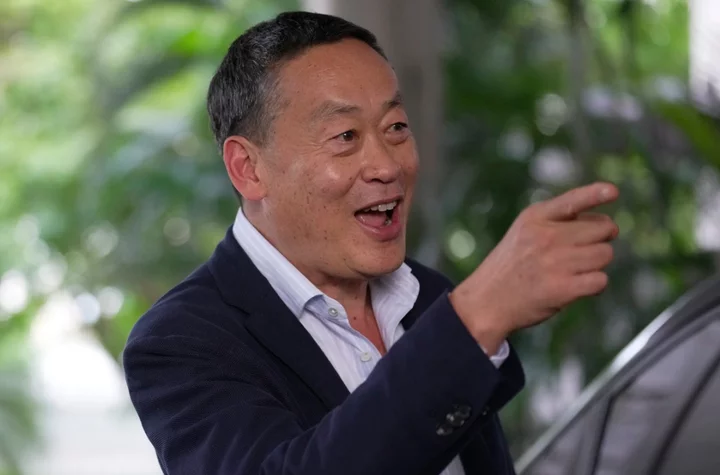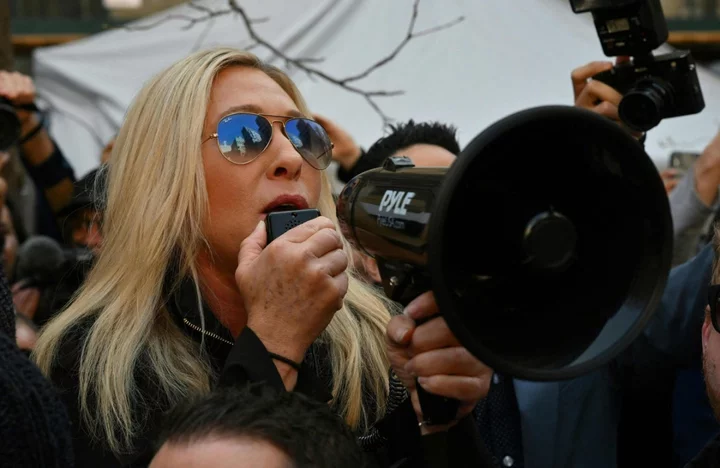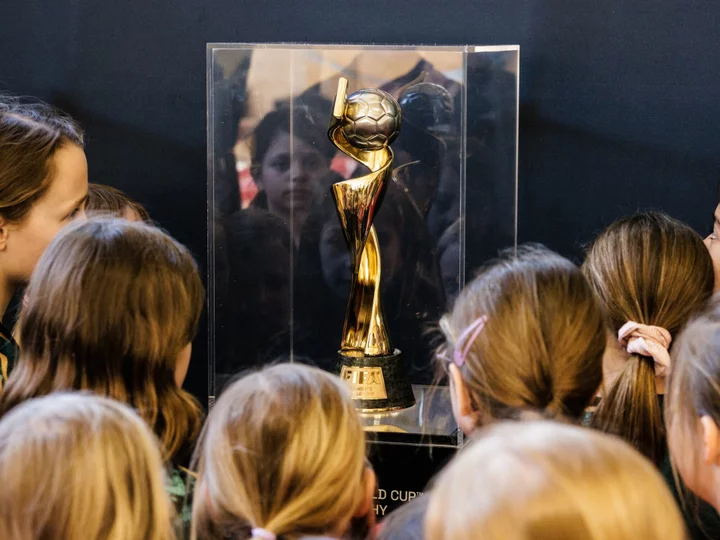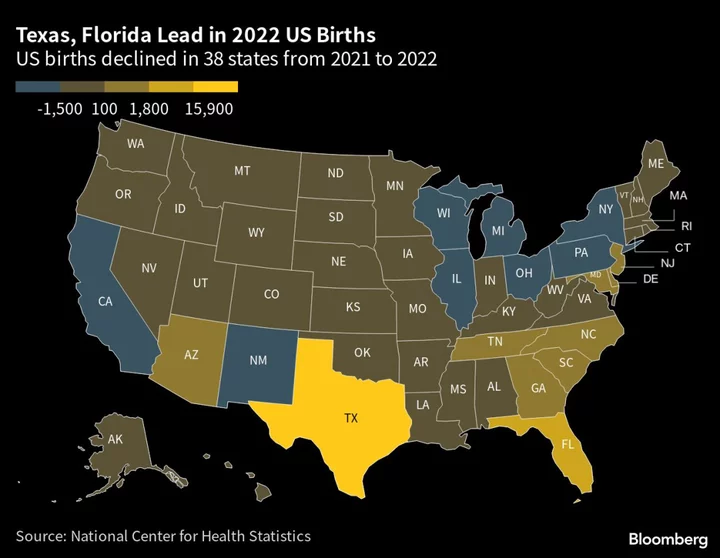Global New Material International Holdings Ltd., a Chinese colorant producer, is in talks on a potential acquisition of Merck KGaA’s pigments arm, people with knowledge of the matter said.
Hong Kong-listed Global New Material, which sells pigments under the Chesir brand name, has made a binding bid for the Merck unit, according to the people. It’s been discussing financing options for the potential purchase, they said, asking not to be identified because the information is private.
A deal could value the pigments business at nearly €1 billion ($1.1 billion), the people said.
Global New Material is in discussion with an independent third party on a possible acquisition of businesses, the company said in an exchange filing Friday that did not name the potential target. Trading was halted Friday and is set to resume from 1 p.m. local time, the filing showed.
Merck shares rose as much as 4.1% on Thursday, the biggest intraday gain in more than five months. The stock was up 1.2% at close in Frankfurt, valuing the company at about €66.4 billion.
Global New Material makes pearlescent pigments from materials including synthetic mica. Its products are used to create shiny colors for industrial coatings, plastics, cosmetics and automotive paint. Shares of Global New Material have gained 11% this year, giving the company a market value of $668 million.
The Chinese company’s discussions with Darmstadt, Germany-based Merck are ongoing, and there is no certainty the parties will reach an agreement, the people said. Other suitors have also expressed interest in the business, they said.
A spokesperson for Merck declined to comment. Calls to the offices of Global New Material offices weren’t answered and it didn’t immediately respond to emailed queries. Mergermarket reported on Chesir’s interest earlier on Thursday.
Global New Material in January agreed to acquire a roughly 42% stake in listed South Korean pigment producer CQV Co. for 85.9 billion won ($66 million). The company said in March it would continue seeking international acquisitions to boost its competitiveness.
Any deal for the Merck unit will test the willingness of European companies and governments to accept Chinese takeovers. Merck employs about 750 people at its Gernsheim site, home to the company’s largest pigment production facility, and German companies and their unions are particularly sensitive to any moves that could risk jobs or local production.
Midea Group Co. of China recently dropped its pursuit of Electrolux AB after finding the Swedish home appliance maker unreceptive to a deal, highlighting the persistent difficulties of Chinese takeovers, Bloomberg News reported on Wednesday.
--With assistance from Tim Loh.
(Updates with exchange filing in fourth paragraph.)
Author: Eyk Henning, Manuel Baigorri and Aaron Kirchfeld









